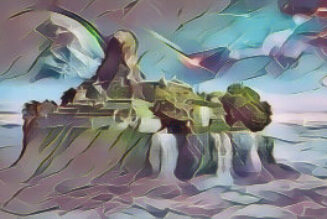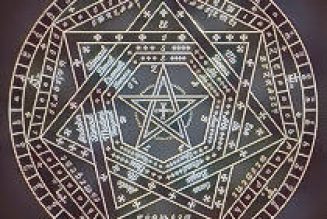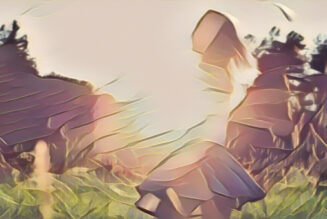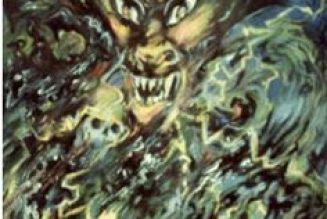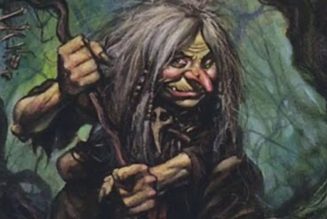The thrice greatest Hermes,” a
mythological blend of the Egyptian god Thoth, who governed
mystical wisdom, magic, writing and other disciplines,
and was associated with healing; and the Greek
god Hermes, the personification of universal wisdom and
patron of magic, the swift, wing-footed messenger god
who carried a magic wand, the caduceus. The ancient
Greeks associated Hermes with Thoth so closely that the
two became inseparable. “Thrice greatest” refers to
Hermes Trismegistus as the greatest of all philosophers;
the greatest of all kings; and the greatest of all priests.
Both Thoth and Hermes were associated with sacred
writings. As scribe of the gods, Thoth was credited with
all sacred books. In some Egyptian writings, he was described
as “twice very great” and “five times very great.”
Hermes was credited with the authorship of 20,000
books by Iamblichus (ca. 250–300 b.c.e.), a Neo-platonic
Syrian philosopher, and more than 36,000 by Manetho
(ca. 300 b.c.e.), an Egyptian priest who wrote the history
of Egypt in Greek, perhaps for Ptolemy I. According
to myth, both Thoth and Hermes revealed to mankind
the healing arts, magic, writing, astrology, sciences and
philosophy. Thoth recorded the weighing of souls in the
Judgment Hall of Osiris Hermes conducted the souls
of the dead to Hades. Hermes, said Francis Barrett in
Biographia Antiqua, “. . . communicated the sum of the
Abyss, and the divine knowledge to all posterity . . .”
Hermes Trismegistus provided the wisdom of the light
in the ancient Egyptian mysteries. He carried an emerald,
upon which was recorded all of philosophy, and the caduceus,
the symbol of mystical illumination. Hermes Trismegistus
vanquished Typhon, the dragon of ignorance
and mental, moral and physical perversion.
The surviving wisdom of Hermes Trismegistus is said
to be the Hermetica, 42 books that profoundly influenced
the development of Western occultism and magic. These
books, probably authored by a succession of anonymous
persons date to between the third century b.c.e. and the
first century c.e.














